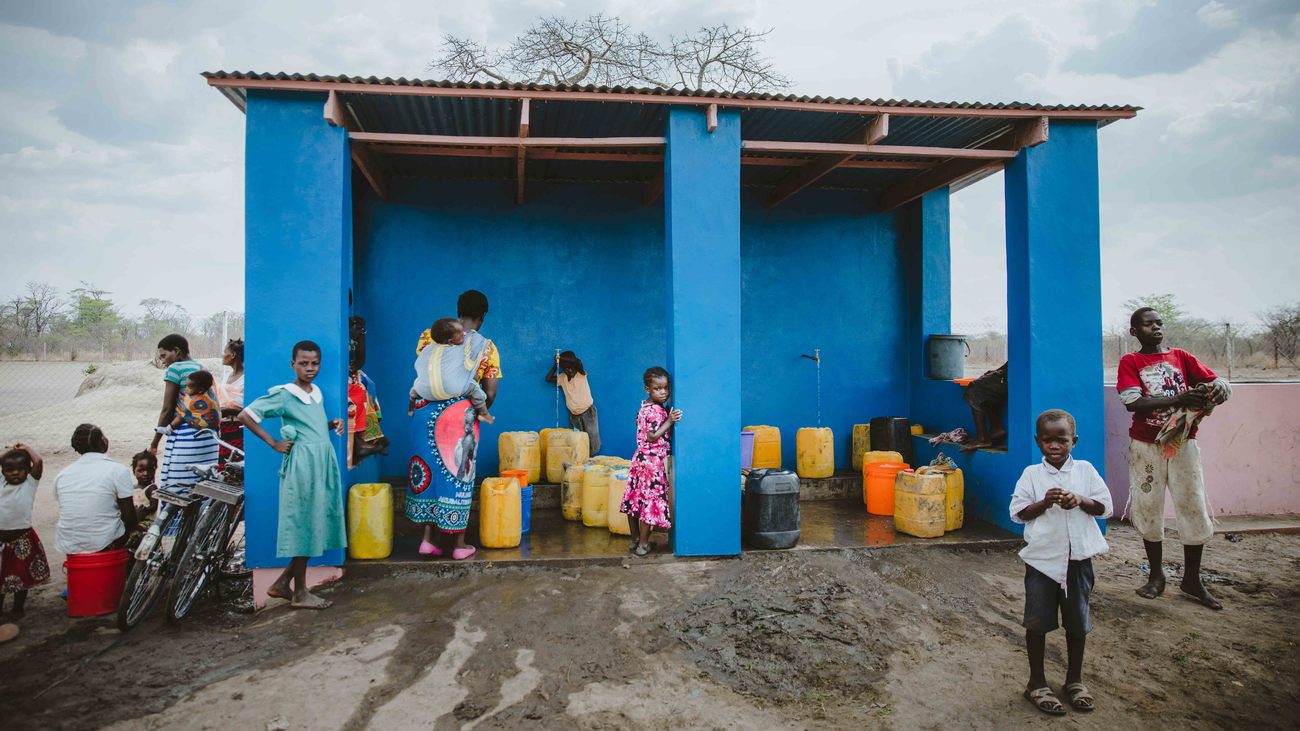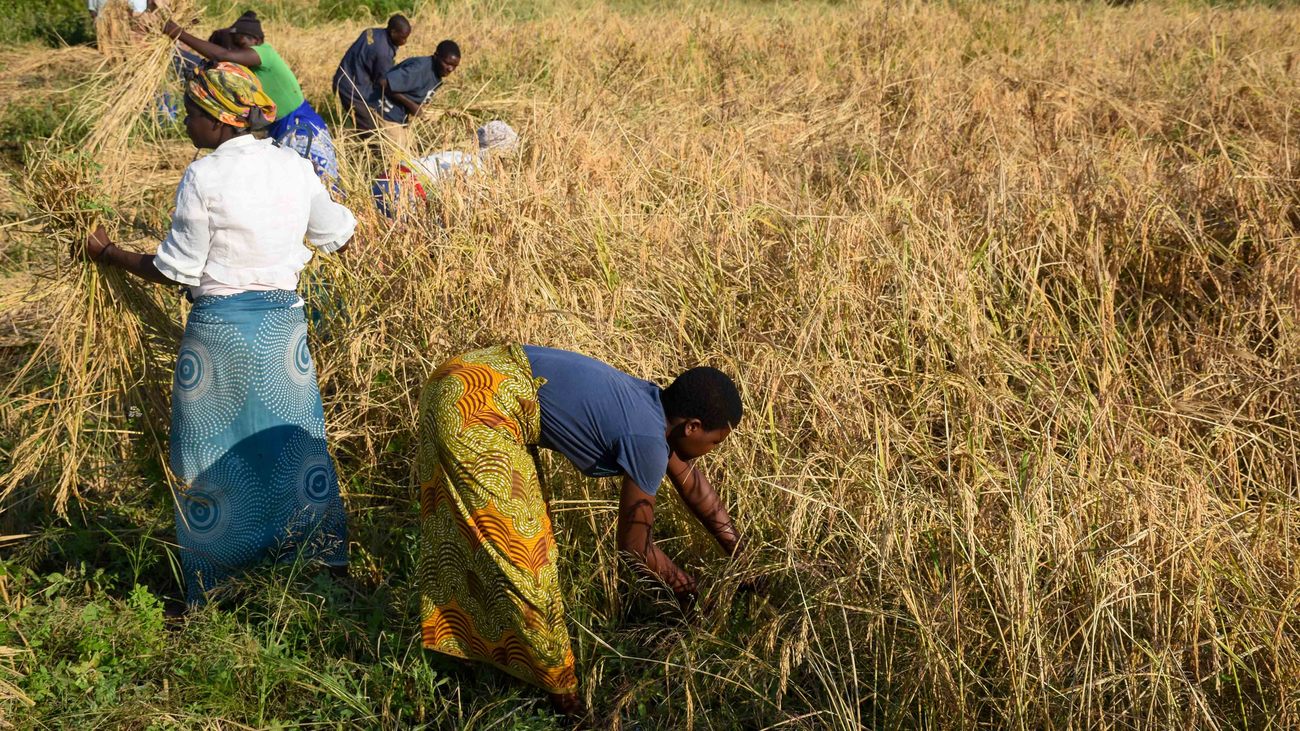Blog
Long’uro: one elephant’s story of immense resilience
Read moreChikolongo community provides rice to wildlife rangers in Kasungu National Park

IFAW has created an unexpected connection between wildlife rangers and a community project—and it comes with dinner.
The Chikolongo Livelihood Project originated in 2013 when IFAW and the Chikolongo community came together to develop solutions for human-wildlife coexistence. Women and children risked their lives travelling through the forest and fetching water along the river. To mitigate the issue of deadly encounters with wildlife, we built a pipeline that carries water from the Shire to villages outside of Liwonde National Park for irrigation and household use. We also repaired a fence that keeps farmlands safe from crop raiding by elephants.
Over the years, the community project has expanded to include five fishponds and 24 irrigated community plots solving food security issues for the 1,400+ people living in the 13 villages of the extended Chikolongo community. The fishponds and food plots also provide a steady income for farmers and their families through the sale of rice and vegetables.

In October, IFAW’s Chikolongo Livelihood Project sold one ton of rice (20 x 50 kilogram bags) to the CWC Malawi-Zambia Trans Frontier Project, an initiative supported by IFAW and USAID through the generosity of the American people. The rice will feed 82 wildlife rangers based in Kasungu National Park, nearly 450 kilometers away from Chikolongo.
The CWC Project works in partnership with government agencies in Malawi and Zambia to reduce wildlife crime and protect habitats over a 7,000-kilometer cross-border landscape, stretching from Kasungu National Park in Malawi to the national parks of Lukusuzi and Luambe in Zambia.
"As part of our law enforcement efforts we provide food rations to wildlife rangers and law enforcement officers when they are on patrol. Rather than purchase rice elsewhere, we’re supporting Chikolongo by buying from them at market price," says Neil Greenwood, IFAW's Regional Director for Southern Africa.
"We’re delighted that almost 10 years on, one IFAW founded project is able to support another. It was always the aim of the Chikolongo Livelihood Project to improve food security and nutrition while addressing the problem of poaching. It’s wonderful that people can harvest and sell their crops to make a living," he says.
"Food security has also ended the need for people to poach for bush meat or to illegally fish in Liwonde National Park. The Chikolongo Livelihoods Project is an outstanding example of an IFAW-Community partnership that enables people and animals to thrive together,” said Greenwood.
This year’s rice yield was three tons. The remaining two tons of rice will go to market in the main centers of Blantyre and Lilongwe, and a portion will be donated to the sick and elderly within the community.
Our work can’t get done without you. Please give what you can to help animals thrive.
Unfortunately, the browser you use is outdated and does not allow you to display the site correctly. Please install any of the modern browsers, for example:
Google Chrome Firefox Safari